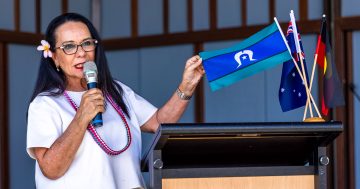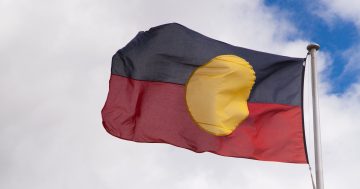
The APS is being urged to avoid ‘deficit discourse’ when discussing Indigenous issues. Photo: Region.
Agencies across the public service are renewing efforts to address language and attitudes in policy areas affecting First Nations peoples.
‘Deficit discourse’, or the ingrained disempowering behaviour and thinking that has led to policy failures relating to Indigenous Australians, is currently receiving renewed and significant attention from policymakers and document writers.
The language used in policy papers to portray Aboriginal and Torres Strait Islander people is a strong focus.
In particular, the portfolio areas of health, education and services are seriously revisiting the lessons learned from recent research into deficit discourse.
Specific programs are underway to approach policy from a strengths-based position that challenges the negative thinking and language that has shaped so much Indigenous policy.
“When we look at how Indigenous Australians have been treated – as far down as condescending language that is used to describe them – we as a nation, but most definitely as policymakers, have a long way to go and a lot to rectify,” one public sector leader involved in introducing strengths-based approaches told Region.
“We are studying the research to see how we need to apply it. We are beginning to apply it.”
In recent years there has been a flurry of studies into the issue. This research is being revisited and scrutinised.
One such paper in the Australian Journal of Social Issues has described how programs and policies such as Closing the Gap are actually framing First Nations people in a negative way from the outset.
“One of the few things that everyone can agree on with respect to Australian Indigenous policy is that repeated government experiments aimed at improving Indigenous well-being in Australia and particularly in remote Australia have failed,” the report stated.
“Outcomes remain poor and are, if anything, deteriorating in a number of areas. Critics have characterised the history of Indigenous policy as a series of failed policy experiments.
“The latest experiment in the quest to improve outcomes involves attempts to move away from the usual rational-technical approaches, toward participatory approaches or ‘partnerships’.
“However, governments are struggling to implement these innovations. Self-evidently, the Closing the Gap policy is grounded in deficit discourse.”
The Lowitja Institute has led the way in this research and has funded Australian National University studies into deficit discourse and how policymakers can reject it.
One of its first published reports on the issue outlined how government policies have often placed responsibility on affected communities while overlooking their larger embedded socio-economic structures.
“While we might think of discourse as ‘just language’, research has shown that it is inseparable from our understandings of the world and how we act,” the report states.
“As such, discourse plays a fundamental role in resource and power inequalities. Deficit discourse regarding Aboriginal and Torres Strait Islander people operates across a range of intersecting fields, including health and education; it circulates in policy, media, everyday conversations, and beyond.
“Media and political discourses often operate in tandem, reproducing negative discourses about Aboriginal and Torres Strait Islander people. There is evidence deficit discourse has real-world outcomes for identity formation, educational attainment, health and wellbeing. It contributes to forms of external and internalised racism.”
There has been diversity, however, between policy documents across agencies, with active efforts to emphasise cultural strengths of First Nations people. Getting a degree of uniformity has proven more difficult.
But that is where the attention has turned throughout the public sector. Those involved in implementing different approaches say noticeable changes in language and thinking towards First Nations people are already noticeable in policy documents and public addresses – and more change is expected.



















